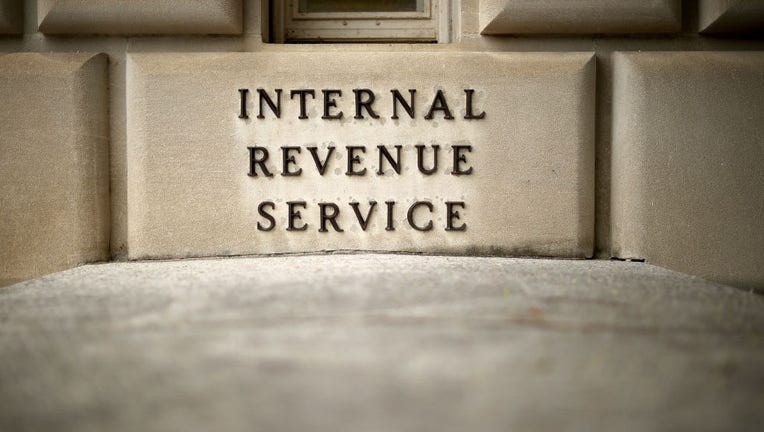Requested a late-filing tax extension? The deadline is looming closer

The Internal Revenue Service headquarters building appeared to be mostly empty April 27, 2020 in the Federal Triangle section of Washington, D.C. (Photo by Chip Somodevilla/Getty Images)
Time is running out for the millions of Americans who requested a tax deadline extension earlier this year to file their 2021 income returns without a financial penalty.
The roughly 19 million taxpayers who asked for an extension earlier this year now face an Oct. 17 deadline to submit their returns. The IRS has repeatedly urged individuals to "avoid a last-minute rush to file" by submitting their returns electronically ahead of the October deadline.
Filing your taxes electronically is the fastest way to get a refund, according to the IRS, especially as the agency works its way through a backlog of paper returns.
Seeking an extension gives filers more time to thoroughly review their return and take advantage of all the tax benefits, like various deductions and credits, that are available to them to help them reduce their liability.
HOW HOUSING IS FUELING RED-HOT INFLATION
And by pushing back the filing date, taxpayers can avoid a failure-to-file penalty – an extra 5% per month on the unpaid amount of money owed, which can add up to 25% of the tax due. If you file for an extension, you have until Oct. 17 before the penalty starts accruing.
Typically, about 1 in 10 Americans ask for an extension; however, this year, the ratio was closer to 1 in 8. That's because of additional challenges for filers this year that are related to the COVID-19 stimulus payments and the expanded child tax credit. Although filers do not owe money on the stimulus payments, they still need to correctly enter the amount they received on their returns – which needs to match IRS records.

The Internal Revenue Service will begin to issue payments to parents under President Joe Biden's expansion of the child care tax credit issued to all Americans with minor children. The payments, which begin July 15, are expected to include at least 39 million parents and 65 million children. The program was approved by Congress as part of the most recent stimulus package related to the COVID-19 pandemic.
The IRS has similar requirements for the child tax credit: Because at least half of the enhanced credit will be paid out as a lump sum when parents receive their 2021 tax return, recipients are required to accurately reconcile the credit they already received when filing their taxes this year. The information is pertinent to determining how much more money families receive from the credit when they fill out Schedule 8812 and Form 1040.
US HOME PRICE GROWTH COOLED IN JULY AT FASTEST PACE SINCE 1980S
If you're expecting to receive a refund this year and you ask for an extension, you won't get that money until you've filed your return. The sooner you file, the sooner you get your refund. The IRS previously urged Americans who expect to receive money to file a refund as soon as possible.
If you did not pay your full tax bill on April 18, when the funds were due, and are still unable to do so, tax experts advise that you request a payment plan for the remaining balance.
The IRS offers some payment plans to individuals who are unable to pay the full amount of taxes they owe.
GET FOX BUSINESS ON THE GO BY CLICKING HERE
There are some taxpayer exceptions to the October deadline: The IRS announced last week that Hurricane Ian victims who live in Florida and have a valid extension to file their tax returns by Oct. 17 now have until Feb. 15 to submit their returns. That February deadline also applies to victims of storms and flooding that started on Sept. 15 in parts of Alaska and Hurricane Fiona victims in Puerto Rico.

